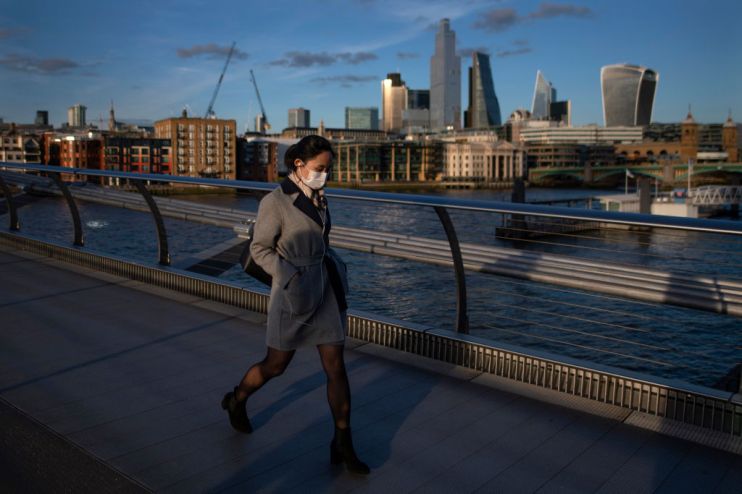FTSE 100 slides after brief rebound following G7 coronavirus pledge

The FTSE 100 has dropped back into the red, having initially recovered some of yesterday’s losses following a pledge from G7 leaders to do “whatever is necessary” to fight the coronavirus pandemic.
Britain’s blue chip index gained as much as three per cent immediately after the open, but had fallen back into the red just over an hour later.
By 10.30am, the FTSE 100 was at minus 1.38 per cent. The smaller, domestically focused FTSE 250 slid as much as 2.47 per cent.
Read more: The coronavirus crisis calls for a two-week stock market trading holiday
Prime Minister Boris Johnson yesterday ordered the most vulnerable to isolate for 12 weeks and asked people to avoid pubs, clubs, restaurants, cinemas and theaters, stopping short of ordering them to close.
The FTSE 100 was dragged down by the world’s largest catering firm, Compass Group, which tumbled over 21 per cent after issuing a coronavirus-related profit warning.
In the midcap index, pub groups JD Wetherspoon and Marston’s shed over nine per cent apiece.
Chancellor Rishi Sunak is expected to announce a raft of additional measures to help virus-hit firms later today, amid fears the coronavirus pandemic could put some companies out of business.
Sunak is expected to offer a large bailout fund for struggling companies, according to reports.
The FTSE’s European peers also returned to the red this morning after a fleeting recovery, with Germany’s Dax and France’s CAC 40 shedding 0.89 and 0.63 per cent respectively.
“While some investors may begin to ask whether we are close to the bottom, others will see further downside potential,” said Share Centre analyst Helal Miah.
“We’re only just at the start of the crisis in the UK and judging by what’s going on in Europe we have the disastrous economic consequences to deal with in the coming months, the data will be saddening just like we have seen from China.”
European markets’ short-lived recovery came after leaders from the G7 countries issued a statement promising to tackle the health and economic risks from the coronavirus outbreak following a conference call yesterday.
“We resolve to coordinate measures and do whatever it takes, using all policy tools, to achieve strong growth in the G7 economies, and to safeguard against downside risks,” they said.
US equities suffered their worst fall since Black Monday in 1987 yesterday after President Donald Trump warned that a recession looks increasingly likely.
Some 12 per cent was wiped off the S&P 500, while the Dow plummeted nearly 13 per cent or almost 3,000 points — the index’s biggest ever points fall.
Read more: Coronavirus: UK death toll rises to 55 after Johnson implements new measures
Asian equities ended Tuesday broadly flat in a jittery session following Wall Street’s plunge. MSCI’s broadest index of Asia-Pacific shares outside Japan was flat, while Japan’s Nikkei ended the day 0.06 per cent up.
Hong Kong’s Hang Seng index added 0.38 per cent, while Shanghai’s SSE Composite edged into the red at minus 0.34 per cent.
Stephen Innes, Global Markets Strategist at Axicorp, warned that the G7’s pledge would have little immediate impact.
“Disrupted supply chains didn’t miraculously get fixed this morning, nor did airplanes suddenly take flight, and neither has the ability of businesses and households to meet loan payments in the near term improve,” he added.
Read more: Coronavirus measures to have ‘devastating’ impact on UK hospitality sector
Innes also stressed the differences between the 2008 financial crisis and the current global stock market rout. “One essential 2008 comparison we tend to overlook was that during the Lehman crash outside the financial sector, life went on,” Innes said.
“In essence, restaurants took bookings; taxis took rides, shops were still bustling. This time around, the entire world is on the precipice of shutting down.”